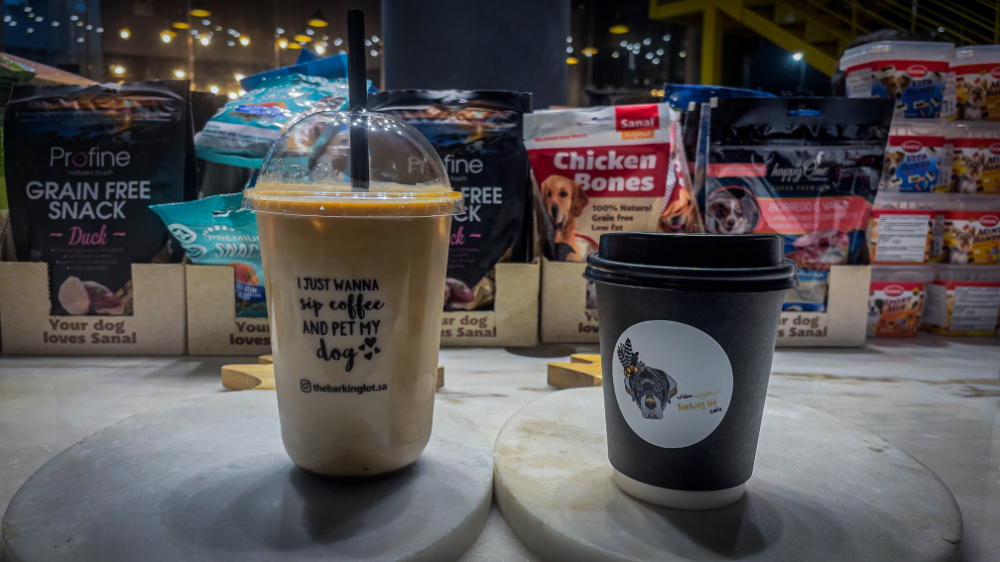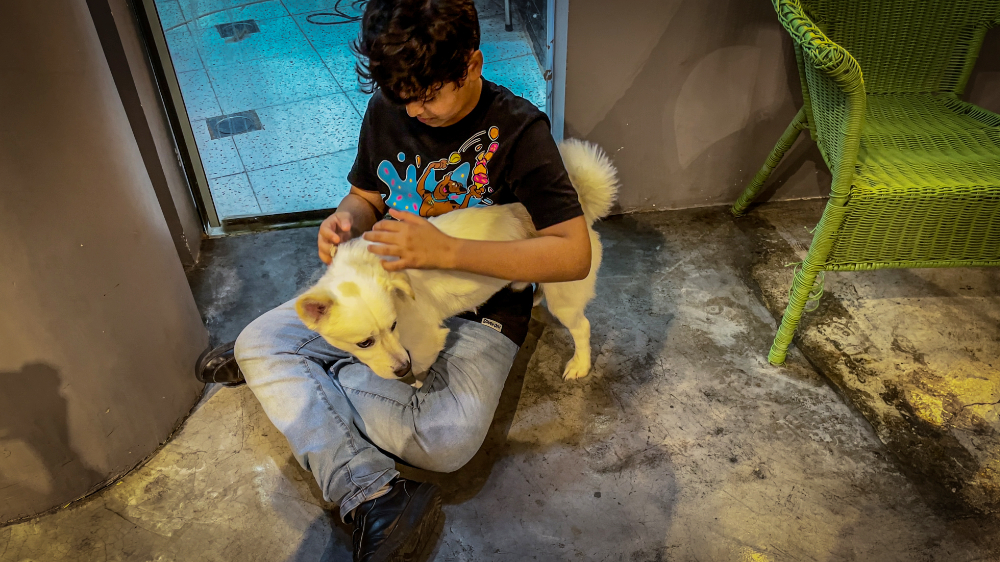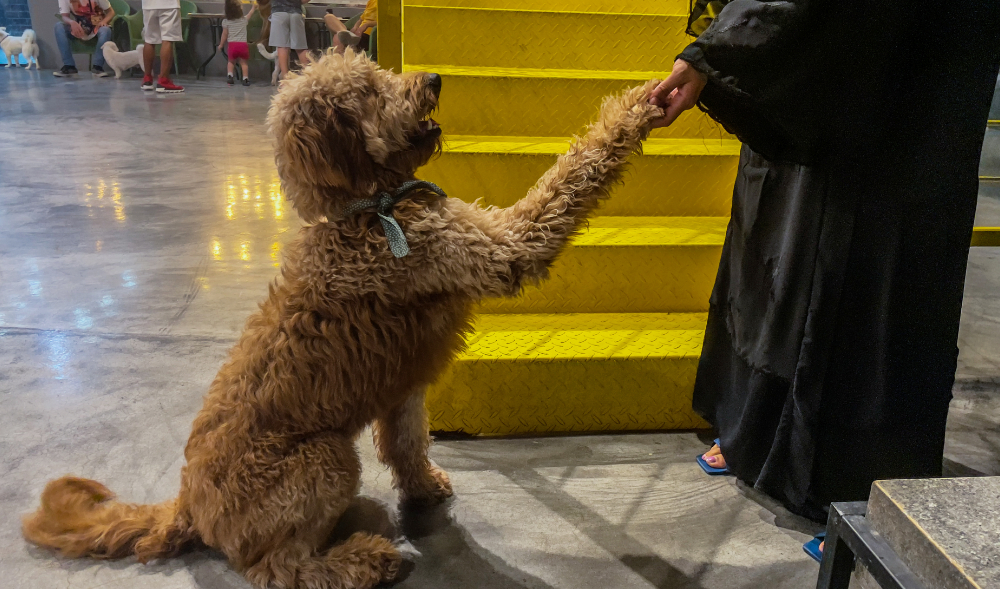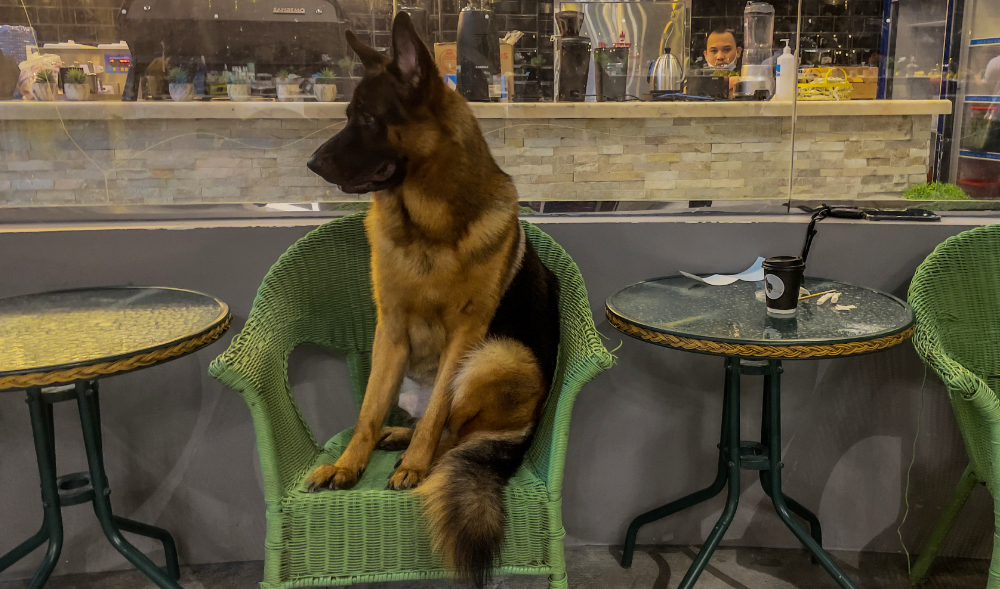ALKHOBAR: Blal Antika overcame his big fear of dogs when he began working at the Kingdom’s first cafe dedicated to canines, the Barking Lot, eight months ago.
Today, Antika is like a protective big cousin, standing stoically at the entrance of the building with its clear glass exterior, mindfully scanning the area, while energetically high-fiving people he recognizes.
He is the first friendly but firm face that greets you and the last one you see before leaving.
A jack of all trades, he does a little bit of everything. While sipping on his favorite iced white mocha from the cafe, he lifts the gate to let people and their best friends in and out.
He is now part of the whole Barking Lot visitor experience, but even he was surprised to be in this position.
HIGHLIGHTS
• The unique cafe has 14 in- house dogs while others visit regularly.
• The cafe also has a grooming station where dogs can get their nails clipped and showered.
• In Saudi Arabia, dogs have traditionally been excluded from living in homes. They were kept on farms or used for security purposes. But over the last decade, there has been a shift in the culture.
“Growing up in Jeddah, I never thought I’d be surrounded by dogs. I’ve always had a sense of adventure so when I got an offer to work at the dog cafe in Alkhobar, I was curious. Even though I always had a fear of dogs, I thought to try it anyway. Now, I miss them whenever I am not around them,” Antika told Arab News.
The unique cafe has 14 in-house dogs while others visit regularly.
The Alkhobar branch has been in operation for over two years. With plenty of snacks for both humans and dogs, the cafe caters to those who want their animals to play in a safe and controlled environment or chat with other people, to exchange tips and show off their furry friends’ new tricks.
Humans can sit in chairs in the back, placed along the clear glass walls overlooking the city, where passersby occasionally peer in curiously.
Occasionally, some dogs will urinate from excitement but a staff member quickly comes to mop and sanitize the spot. You can hear bursts of barking, as dogs enter and exit, but this doesn’t last long.
The cafe also has a grooming station where they can get their nails clipped and showered.
Ameerah, who was raised in Dhahran, returned last year after living in Canada, armed with a degree and her first dog, Lilly.
The 20-kilogram highly energetic combination golden retriever and poodle is a golden doodle.
“When I first got Lilly, she was only seven weeks. I was very excited because this is the first time I got a pet, and that was a dream of mine from childhood. When I first got her, it was abroad so everything was open. You know, people there understand what it means to own a pet and raise it. It’s like their child in the house but here it’s different,” she told Arab News.
In Saudi Arabia, dogs have traditionally been excluded from living in homes. They were kept on farms or used for security purposes. But over the last decade, there has been a shift in the culture.
On the night of our visit, you could hear giddy children calling out to Lilly. One young girl asked if she could feed Lilly a treat but Ameerah gently declined and explained that this would give the canine indigestion. The little girl happily petted Lilly instead. It’s not hard to see why Lilly is a local favorite.
Lilly sweetly interacts with other larger dogs and socializes in the controlled environment. Her mother enjoys these visits and appreciates how the Barking Lot cafe is helping to broaden the understanding of what it means to include a woman’s best friend to the cultural mix.
Lilly helped Ameerah cope with being away from home during the pandemic and is now helping her hometown accept dogs as legitimate members of the family.
The cafe also helps both of them beat the sweltering Saudi heat.
“The weather, of course, is a shock for me and her and when I came to the cafe, you know, everything is enclosed. It has AC so I’d rather bring her here than taking her to play in the park. We’re either at home or at the cafe,” she said.
The Barking Lot was launched in Kuwait by Dalal Al-Sharhan with the Alkhobar branch opening in 2020 as the first canine-friendly cafe in the Kingdom followed by its second branch in 2021 in Riyadh.
For their hours and menu items, including grooming for the pets and coffee for their humans, visit @TheBarkingLot.sa



























